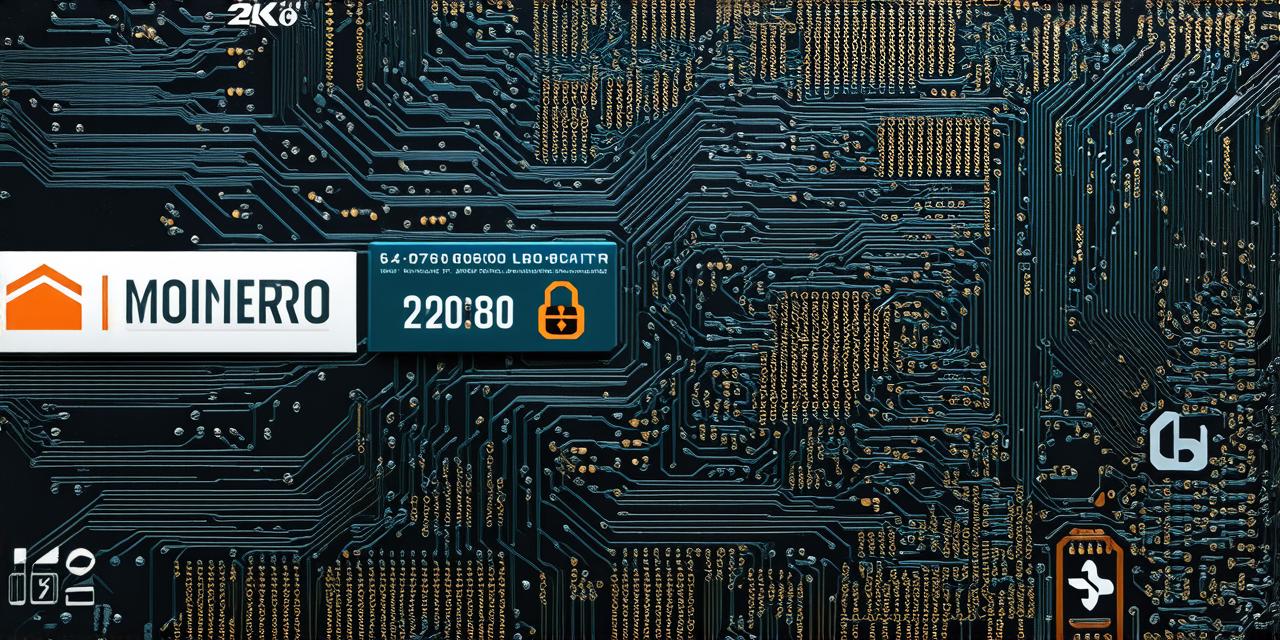
Introduction
Blockchain technology has revolutionized the way we store and share data. It is a decentralized, immutable ledger that records all transactions and data in a secure and transparent manner. In this article, we will explore what is stored on the blockchain and its various applications in different industries. We will also discuss the advantages and limitations of using blockchain technology for storing data.
What is Blockchain?
Blockchain is a decentralized digital ledger that records all transactions and data in a secure and transparent manner. It consists of a series of blocks that contain information about transactions, such as the date, time, and amount. Each block contains a cryptographic hash that links it to the previous block, forming an unalterable chain of blocks.
Applications of Blockchain Technology
Blockchain technology has various applications in different industries, including finance, healthcare, supply chain management, and more. Here are some examples:
- Finance: In the finance industry, blockchain is used to create a secure and transparent platform for financial transactions. It enables faster and cheaper cross-border payments, eliminates intermediaries, and reduces fraud. Blockchain also allows for the creation of decentralized finance (DeFi) applications that provide financial services such as lending, borrowing, and trading without the need for intermediaries.
- Healthcare: In healthcare, blockchain technology is used to securely store patient data and medical records. It enables patients to control their own data and share it with healthcare providers as needed. Blockchain also allows for the creation of a decentralized medical supply chain that ensures the authenticity and safety of medical products.
- Supply Chain Management: In supply chain management, blockchain technology is used to create a transparent and secure platform for tracking and verifying the origin and movement of goods. It enables companies to track their supply chains from raw materials to finished products, ensuring compliance with regulations and reducing fraud.
Types of Data Stored on the Blockchain
Blockchain can store various types of data, including:
- Transactions: Transactions are the most common type of data stored on the blockchain. They include financial transactions such as payments, transfers, and exchanges, as well as non-financial transactions such as the transfer of ownership of digital assets.
- Smart Contracts: Smart contracts are self-executing programs that run on the blockchain. They enable companies to automate complex business processes and enforce agreements between parties without the need for intermediaries.
- Identity Data: Identity data refers to personal information such as name, address, and date of birth. Blockchain technology can be used to securely store identity data and prevent fraud.
- Sensitive Data: Sensitive data includes confidential information such as medical records, financial data, and intellectual property. Blockchain technology can be used to store sensitive data securely and prevent unauthorized access.
Advantages of Using Blockchain Technology for Storing Data
Blockchain technology has several advantages when it comes to storing data:
- Decentralization: Blockchain technology is decentralized, meaning there is no central authority controlling the network. This makes it resistant to censorship and tampering.
- Immutability: Data stored on the blockchain is immutable, meaning once it is recorded, it cannot be changed or deleted. This provides a high level of security and ensures the integrity of the data.
- Transparency: All transactions and data stored on the blockchain are visible to anyone on the network. This enables greater transparency and accountability.
- Cost-Effective: Blockchain technology is cost-effective, as it eliminates intermediaries and reduces transaction fees.
Limitations of Using Blockchain Technology for Storing Data
While blockchain technology has several advantages, it also has some limitations:
- Scalability: Blockchain technology can be slow and inefficient when dealing with large amounts of data. This can make it difficult to scale up for use in industries such as finance and healthcare.
- Regulation: Blockchain technology is still relatively new and untested, which makes it difficult for regulators to develop effective frameworks for its use.
- Security: While blockchain technology is secure, there is always a risk of hacking and cyber attacks.
Conclusion
In conclusion, blockchain technology has revolutionized the way we store and share data. It offers a decentralized, immutable, and transparent platform for storing various types of data, including transactions, smart contracts, identity data, and sensitive data. While it has several advantages, such as decentralization, immutability, transparency, and cost-effectiveness, it also has some limitations, such as scalability, regulation, and security. As blockchain technology continues to evolve and mature, it will be interesting to see how it is used in different industries and how it addresses these challenges.



